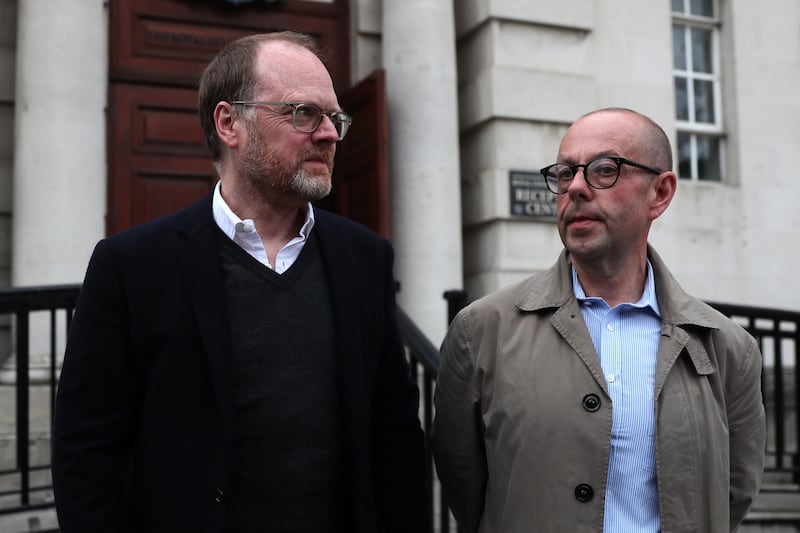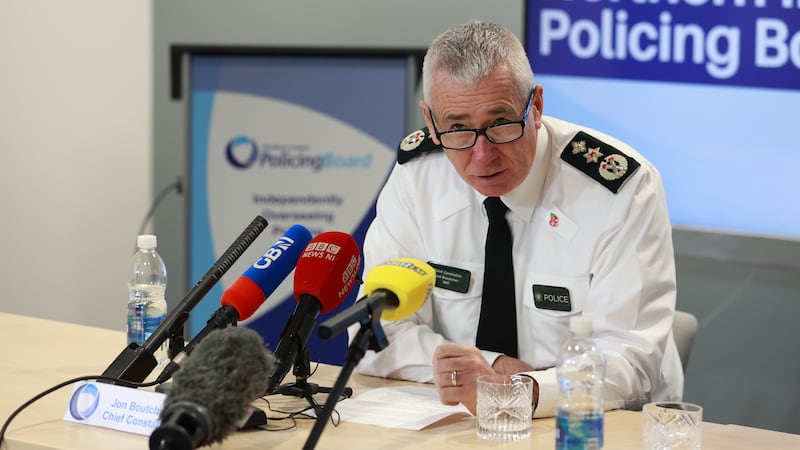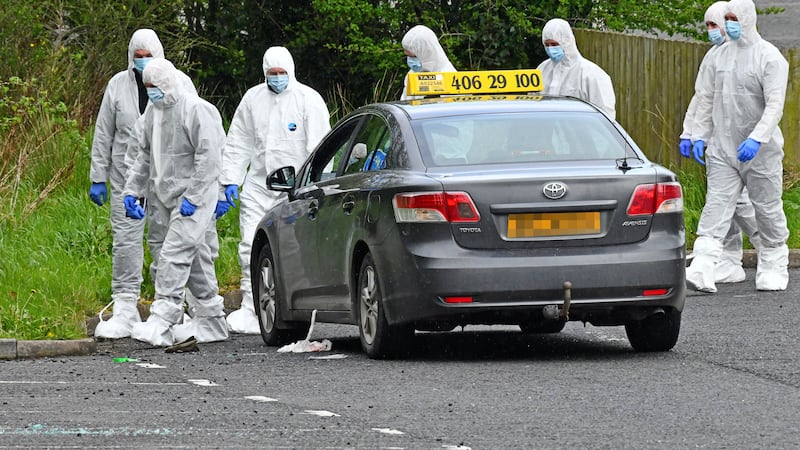A police report on surveillance of journalists has been branded “utterly vague” and lacking assurances that the actions of officers were legal.
Six months after it was requested, the PSNI has given the report to the Northern Ireland Policing Board, but the document on surveillance practices in relation to journalists and lawyers will not be made public.
The board’s human rights adviser will be granted access to material the report is based on, and PSNI Chief Constable Jon Boutcher has committed to the production of a second report, which will be made public.
“We’re very keen to ensure we have a report that can be published, to work towards that with the board,” Mr Boutcher told board members on Thursday.
The PSNI had been under mounting pressure to hand the report to its oversight body amid revelations linked to the high-profile case of two journalists who were subject to police surveillance.
In February, a tribunal in London was told that police mounted a covert surveillance operation after the arrest of filmmakers Barry McCaffrey and Trevor Birney in a bid to unmask one of their sources.
The Investigatory Powers Tribunal (IPT) heard that the arrest of the journalists in 2018 was a “disruptive” tactic to see if the reporters would contact the source after their release from custody.
The tribunal is also investigating several incidents, the first dating back to 2011, involving police accessing Mr McCaffrey’s phone data.
- Police mounted surveillance op after journalists’ arrest in bid to find sourceOpens in new window
- Barry McCaffrey and Trevor Birney: Police ‘mounted surveillance op’ after journalists’ arrest in bid to find sourceOpens in new window
- ‘Cautious welcome’ for Chief Constable’s vow on media surveillance informationOpens in new window
The PSNI and the Metropolitan Police in London both obtained the reporter’s phone data without his knowledge or consent.
In 2018, Mr McCaffrey and Mr Birney were arrested as part of a police investigation into the alleged leaking of a confidential document that appeared in a documentary they made on the 1994 Loughinisland massacre.

The following year, the two journalists lodged a complaint with the IPT asking it to establish whether there had been any unlawful surveillance of them. The case is ongoing.
Amid the fallout from the disclosures related to Mr McCaffrey and Mr Birney, the Policing Board requested the PSNI to produce a report outlining any other instances of covert surveillance of journalists and lawyers.
Campaigners such as Amnesty International and the Committee for the Administration for Justice have also called for the board to set up its own inquiry.
At Thursday’s board meeting in Belfast, Mr Boutcher said it was important to have transparency around the use of covert policing tactics.
“I believe, for these tactics to be used, we need to demonstrate that we use them properly,” he said.
“And if we don’t demonstrate we use them properly, we’re not accountable for them, then there’s a risk that we lose them. So that’s why the transparency is important.”
However, several board members criticised the quality and content of the report.
Sinn Fein’s Gerry Kelly told Mr Boutcher: “Let me start off by welcoming the fact that you said the PSNI want to be open and transparent.
“I think it’s fair to say the report we got didn’t stand up to that.”
Alliance board member Nuala McAllister said of the report: “Unfortunately there was a lot of information that was just utterly vague at times, not remotely specific.”
SDLP member Mark H Durkan agreed with criticisms by board colleagues, and asked whether the UK Government had any role in the production of the report.
Mr Boutcher insisted the government was not involved.
Following the meeting, Policing Board Chair Mukesh Sharma said: “The PSNI, and all policing services, have access to a range of intrusive surveillance powers. Whilst this work is now highly regulated, given recent revelations there is a public interest issue around whether powers have been used lawfully, proportionately and appropriately in the past, particularly in sensitive areas such as this.”

